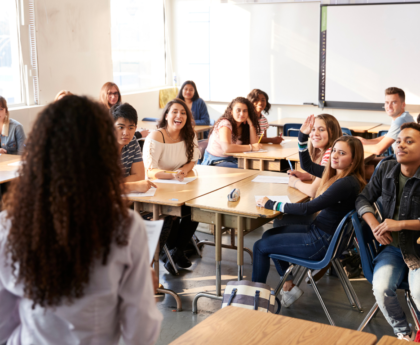In the ever-evolving landscape of education, outcome-based education (OBE) has gained prominence as a student-centered approach that focuses on measurable learning outcomes. With OBE, the emphasis is placed on equipping students with the skills, knowledge, and competencies they need to thrive in their chosen fields. To achieve this, educators are exploring advanced teaching and learning methods that align with the principles of OBE. In this blog post, we will delve into some of these innovative methods that promote effective teaching and enhance student learning outcomes.
- Problem-Based Learning (PBL)
Problem-based learning is an active learning approach where students engage in solving real-world problems that are relevant to the subject matter. Instead of traditional lectures, students work collaboratively in groups, analyzing and researching the problem, developing solutions, and presenting their findings. PBL encourages critical thinking, problem-solving skills, and the ability to work in teams, all of which are essential outcomes in an OBE framework.
- Flipped Classroom
The flipped classroom model flips the traditional teaching approach by moving direct instruction outside the classroom, often through pre-recorded video lectures or online resources. In-class time is then utilized for interactive activities, discussions, and problem-solving exercises. This method encourages students to actively engage with the learning material and enables teachers to provide personalized guidance and support, thereby facilitating deeper understanding and application of knowledge.
- Authentic Assessments
Assessment plays a crucial role in outcome-based education. Authentic assessments go beyond traditional exams and tests by evaluating students’ ability to apply knowledge and skills in real-world contexts. This can include projects, portfolios, presentations, case studies, and simulations. Authentic assessments encourage students to demonstrate their understanding, problem-solving abilities, and creativity, aligning with the core principles of OBE.
- Technology-Enhanced Learning
Incorporating technology into teaching and learning has become increasingly important in OBE. Educational technology tools such as online learning platforms, virtual simulations, augmented reality, and interactive multimedia resources provide opportunities for active engagement and personalized learning experiences. These tools can facilitate self-paced learning, immediate feedback, and access to a vast array of resources, empowering students to take ownership of their learning journey.
- Cooperative Learning
Cooperative learning emphasizes collaboration and teamwork among students. Through group work, students learn from one another, develop communication and interpersonal skills, and appreciate diverse perspectives. Cooperative learning strategies like jigsaw, think-pair-share, and group projects foster a supportive learning environment that aligns with the collaborative nature of many professional settings. This approach nurtures skills such as teamwork, communication, and leadership, which are essential outcomes of OBE.
Conclusion
As education adapts to meet the demands of the 21st century, outcome-based education has emerged as a student-centered approach to learning. By incorporating advanced teaching and learning methods, educators can enhance the effectiveness of OBE and prepare students for the challenges and opportunities of the future. Methods such as problem-based learning, the flipped classroom, authentic assessments, technology-enhanced learning, and cooperative learning foster critical thinking, collaboration, and the practical application of knowledge and skills. By embracing these innovative approaches, educators can ensure that students are equipped with the competencies they need to succeed in their academic pursuits and professional careers.
